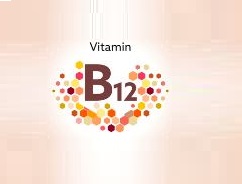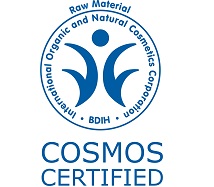

Organic Vitamin B12 Powder
The indiscriminately use of fertilizers and pesticides in agriculture can have severe impact on human health ranging from toxicity and deadly diseases. We at ARYAN are committed to address this challenge by working towards the organic food which uses herbal plants based extracts and adopts phytoremediation for removal of hazardous substances and toxic metals. For last two decades, our group has been involved in the production of Organic botanical extracts, organic essential oils, organic edible oil, organic spices, organic starch, organic flours, and organic seeds. Now we are focusing on organic minerals and organic vitamins. By now ARYAN has carved a niche for itself in the field of ORGANIC FOODS and is continuously moving in leaps and bounds. Taking a leaf out of this growth, we intend to start the production of our “Organic Vitamin B12 Powder”. Our vitamin is purely organic and does not use any chemical compounds. Unlike other organic Vitamin B12 available in the market, ours is totally “Gluten Free”. We have already developed the organic Vitamin B12 and shortly file the patent so that commercial production can star in near future.
- Vitamin B12 is needed to form red blood cells and DNA. It is also a key player in the function and development of brain and nerve cells. Vitamin B12 binds to the protein in the foods we eat. In the stomach, hydrochloric acid and enzymes unbind vitamin B12 into its free form.
- Vitamin B12 is an especially important vitamin for maintaining healthy nerve cells, and it helps in the production of DNA and RNA, the body’s genetic material. Vitamin B12 works closely with vitamin B9, also called Folate or folic acid, to help make red blood cells and to help iron work better in the body.
- Folate and B12 work together to produce S-adenosylmethionine (SAMe), a compound involved in immune function and mood.
- Vitamins B12, B6, and B9 work together to control blood levels of the amino acid homocysteine. High levels of homocysteine are associated with heart disease.
The source of Vitamin B12 is Fish, meat, poultry, eggs, milk and other dairy product. Clams and beef liver are some best source of Vitamin B12. Some breakfast cereals, nutritional yeast, and other food products are fortified with Vitamin B12.
Here are some good sources of Vitamin B12: Tempeh, Swiss cheese, Nori Seaweeds, Chlorella, Cremini Mushroom and Shiitake Mushroom.
The recommended dietary allowance for Vitamin B12 (Food and Nutrition Board) in both International Units (IUs) and micrograms.
Recommended Dietary Allowances for Vitamin B12
| Life Stage | Recommended amount |
| Birth to 6 months | 0.4 mcg |
| Infants 6-12 months | 0.5 mcg |
| Children 1-3 years | 0.9 mcg |
| Children 4-8 years | 1.2 mcg |
| Children 9-13 years | 1.8 mcg |
| Teens 14-18 years | 2.4 mcg |
| Adults | 2.4 mcg |
| Pregnant teens and Women | 2.6 mcg |
| Breastfeeding teens and Women | 2.8 mcg |
Benefits of Vitamin B12
1. Brain Health
Vitamin B12 is an essential nutrient for the neurons in the brain. Brain atrophy, which refers to the loss of neurons in the brain, is associated with memory loss and dementia. In one randomized trial, older adults with early-stage dementia who were given vitamin B12 supplements to lower their blood homocysteine levels demonstrated a slower rate of cognitive and clinical decline.
2. Blood Health
Vitamin B12 is an important factor in helping the body produce healthy red blood cells. When the body is deficient in or has low levels of vitamin B12, this can cause red blood cells to improperly develop. As a result, the red blood cells become larger and irregular in shape. This prevents them from moving from the bone marrow to the bloodstream (This is how megaloblastic anemia is caused).
3. Reduced risk of Macular degeneration
Supplementing with vitamin B12 is believed to lower homocysteine in the bloodstream, which may help prevent age-related macular degeneration, an eye disease that can cause blindness in older adults. In one study of 5,000 women age 40 and up, those who took supplements of vitamins B12, B6, and folic acid had 34% fewer cases of macular degeneration after seven years than a placebo group. Their risk of severe degeneration was 41% lower.
4. Depression Prevention and Treatment
Vitamin B12 plays a role in serotonin production, so a deficiency may be connected with clinical depression. In one study, disabled older women with a B12 deficiency were found to have doubled the risk of severe depression as those without a deficiency.
5. Skin Health
Vitamin B12 is known to help the skin, hair, and nails. Deficiency in the vitamin leads to discoloured patches, skin hyperpigmentation, vitiligo, reduced hair growth, and more.
6. Heart Health
Studies show that vitamin B12 reduces homocysteine levels in the blood. This amino acid is connected with an increase in heart disease. Researchers have found that people who have modestly elevated homocysteine levels have higher rates of heart attack and stroke.
A deficiency of Vitamin B12 can cause tiredness, weakness, numbness and tingling in fingers and toes. Individuals who are likely to be deficient in Vitamin B12 are older people who don’t produce enough hydrochloric acid in their stomach to absorb the vitamin naturally through food.
Individuals who have digestive disorders such as Crohn’s disease and celiac disease, as well as people who had weight loss surgery or gastrointestinal surgery, may be deficient in B12 due to decreased absorption.
Other individuals include people who don’t consume many animal products. Vegetarians and vegans should ask their healthcare provider to check their vitamin B12 levels. Excessive alcohol consumption also puts people at risk of B12 deficiency.
Precautions
If you’re getting your magnesium from food sources, you don’t need to worry about any Vitamin B12 side effects from eating too much. Excess Vitamin from food is simply filtered by the kidneys and excreted through the urine. Before taking Vitamin B12, tell your doctor or pharmacist if you are allergic to it; or to any form of vitamin B12; or to cobalt; or if you have any other allergies. This product may contain inactive ingredients, which can cause allergic reactions or other problems.
Vitamin B12 taken by mouth should only be used if your body can properly absorb it. You may need a form of vitamin B12 that is injected or inhaled in the nose if you have any of the following health problems: pernicious anemia, food absorption problems, stomach/intestinal surgery (such as gastric bypass or bowel resection), stomach/intestinal disease (such as Crohn’s disease, colitis, diverticulitis, pancreatic insufficiency), irradiation of the small bowel. Cyanocobalamin is safe to use during pregnancy when taken in recommended doses. Higher doses should be used only when clearly needed. Cyanocobalamin passes into breast milk and is unlikely to harm a nursing infant when used in recommended doses.
Search Products
- Organic Botanical Extract
- Organic Cereals
- Organic Edible Oils
- Organic Emulsifiers
- Organic Essentials Oils & Extracts
- Organic Fatty Acids
- Organic Flours
- Organic Formulations
- Organic Herbs
- Organic Minerals
- Organic Nutraceuticals
- Organic Nuts
- Organic Oil Seeds
- Organic Pulses
- Organic Special Products
- Organic Spices
- Organic Starch
- Organic Vitamins










